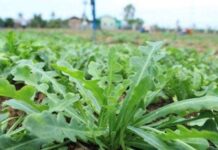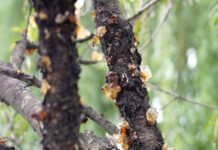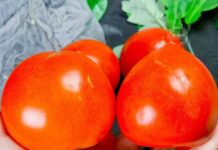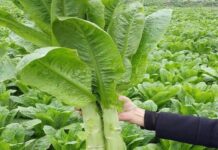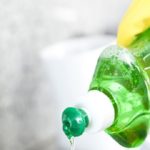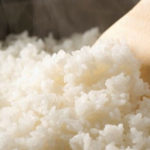Below is one of the three types of powder; sprinkle a little into your flower bed to promote healthy plant growth:
1. Baking Soda
Baking soda is a common kitchen ingredient with powerful detoxifying properties. It can be used to clean flower pots and leaves, keeping them fresh and vibrant. Additionally, it helps adjust the soil’s pH levels and enhances the color of hydrangeas.
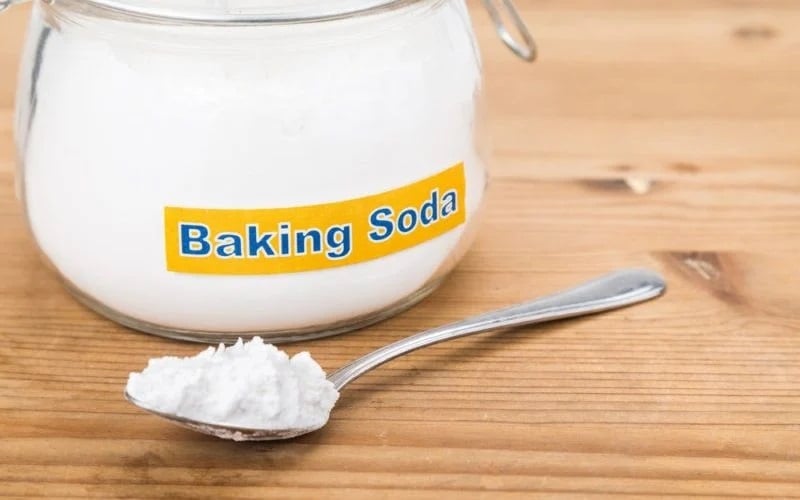
Baking soda cleans flower pots and leaves, keeping them fresh.
Baking soda also promotes flowering and prolongs the blooming period. Mixing it with water and spraying it on flowering plants can extend the blooming period by up to a week, resulting in more vibrant and beautiful flowers. Hence, it is often referred to as a “flower-boosting warrior.”
Moreover, baking soda has antibacterial and insecticidal properties. It can be used to control powdery mildew and leaf spot diseases on roses and azaleas, and it effectively repels pests such as aphids and ants.
Baking soda also acts as an odor neutralizer. You can sprinkle some homemade fertilizer mixed with baking soda and a little bit of yeast to eliminate unpleasant odors.
2. Vitamin B1
Vitamin B1, also known as Thiamine, was the first identified vitamin in the B complex. It plays a crucial role in the primary metabolic processes of all living organisms. Recent studies have also highlighted its importance in providing fundamental protection to plants against biological and abiotic stresses.
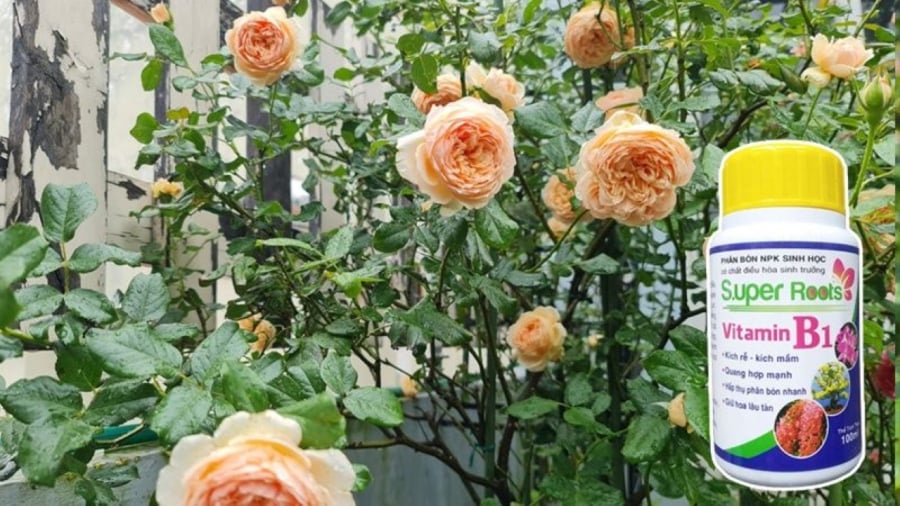
Using Vitamin B1 on plant roots promotes faster and denser root growth.
For potted flowers and ornamental plants, Vitamin B1 has the following benefits:
For newly potted or transplanted plants, or those that have undergone soil or medium changes, Vitamin B1 helps them adapt quickly to their new growing environment. This enables the plants to absorb nutrients from the soil and supplementary sources more efficiently.
Sprinkling a small amount of Vitamin B1 powder into the flower bed results in denser root growth and up to three times more shoots. Vitamin B1 accelerates the plants’ metabolic processes, leading to healthier growth. It also enhances their ability to absorb provided nutrients.
Vitamin B1 optimizes the synthesis of chlorophyll pigments in leaves, keeping them greener and fresher for extended periods. It enhances the photosynthetic process, promoting faster and more vigorous growth. Furthermore, it stimulates flowering in certain ornamental plants, resulting in larger and more vibrant blooms that last longer.
This is why gardeners and plant enthusiasts often recommend using Vitamin B1 when purchasing new flowers or ornamental plants.
3. Aspirin
At the University of Rhode Island, gardeners conducted an experiment by crushing four Aspirin tablets and mixing them with 15 liters of water. They sprayed this solution on a section of their vegetable garden three times a week throughout the growing season.
The results were remarkable. At the end of the season, they observed that the treated plants grew better and yielded higher than those that were not sprayed with Aspirin.
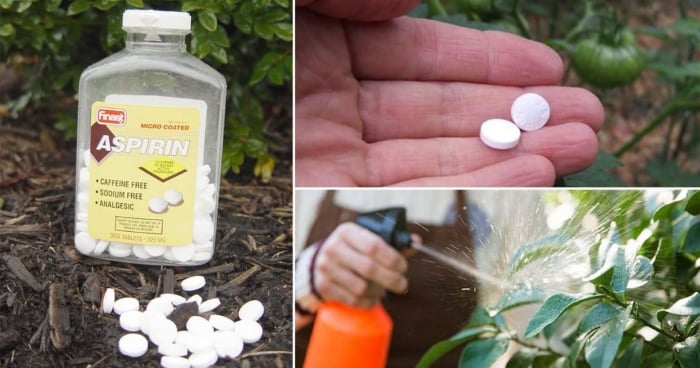
Using Aspirin helps plants grow better and produces higher yields.
Aspirin contains salicylic acid, an active ingredient derived from willow bark. This acid boosts the immune system of plants, especially those that thrive in shaded areas. With an enhanced immune response, these plants can better defend themselves against insect and bacterial attacks, leading to more robust growth.
Recent research by the US Department of Agriculture also suggests that Aspirin can significantly reduce the spread of fungal infections in crops. You can mix Aspirin with distilled water and spray it on tomatoes and potatoes to prevent various diseases in these crops.

